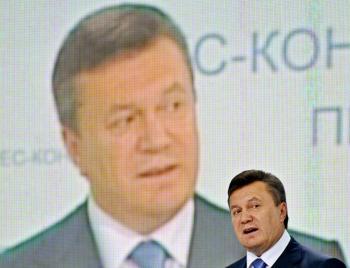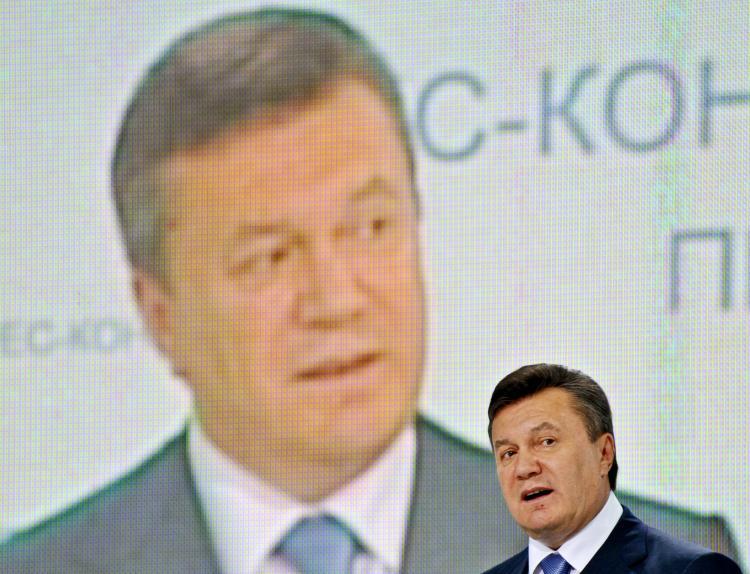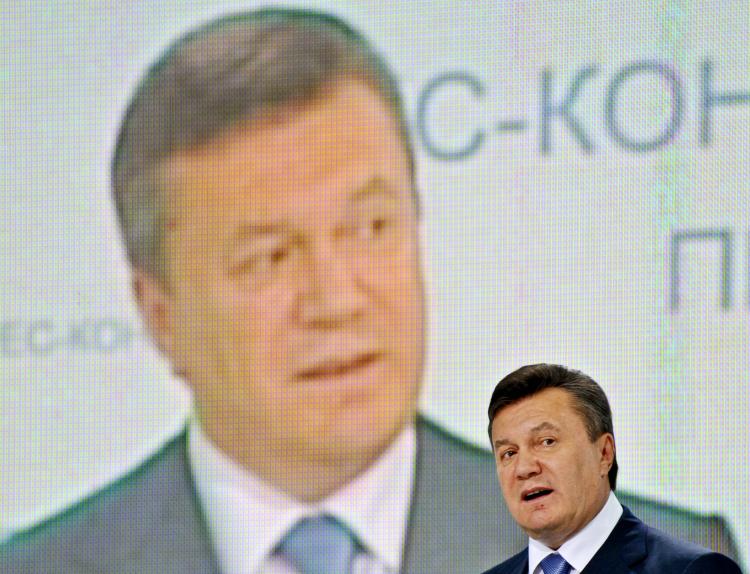KYIV, Ukraine—Press freedom has decline sharply in Ukraine since Russia-leaning President Viktor Yanukovych assumed power earlier this year, according to Reporters Without Borders.
“We have concluded that it becomes more and more problematic in Ukraine to be an independent journalist,” said Jean-François Julliard, secretary general of Reporters Without Borders (RSF), at a press conference in Kyiv on Wednesday.
Members of RSF had come to Ukraine to meet with journalists, officials, and parliamentarians in an investigation to asses the state of press freedom in Ukraine.
Ever since Yanukovych took over the presidency in February this year, there have been increased concerns about censorship of media and cases of physical attacks and harassment on journalists.
Several television channels that used to pursue an independent editorial policy have seen their broadcast frequencies cut off.
Journalists complain that the government has become less responsive and there are few open meetings with the press.
The increasingly difficult circumstances journalists now face have marked the end of an improvement trend in press freedom over the last few years.
Former Ukrainian President Victor Yushchenko had allowed media to become increasingly more independent and critical toward the authorities. This, in turn, led the media to express excessive criticism of him—now that they had the opportunity to do so.
According to media experts, one of the reasons for concern is that owners of Ukrainian media companies want to be loyal to the government.
“All this naturally reflects on the country’s information space, which has been providing much less criticism of the current government, less opinion of opposition forces, and more compliments,” said Victoria Sumar, director of Kyiv Mass Media Institute, in a report.
Head of the national security service, Valeriy Khoroshkovsky, has been appointed by the president as a member of the High Council of Justice and given the responsibility for investigating censorship. This raised concerns about the integrity of his research.
“Yanukovych must make a public statement to reassure that he wants to protect press freedom in Ukraine and will do his best,” said Julliard.
Meanwhile, Ukrainian authorities have kept saying that they are committed to democracy, with the main tactic of the current government being to “ignore criticism and proposals,” said Sumar.
“We have concluded that it becomes more and more problematic in Ukraine to be an independent journalist,” said Jean-François Julliard, secretary general of Reporters Without Borders (RSF), at a press conference in Kyiv on Wednesday.
Members of RSF had come to Ukraine to meet with journalists, officials, and parliamentarians in an investigation to asses the state of press freedom in Ukraine.
Ever since Yanukovych took over the presidency in February this year, there have been increased concerns about censorship of media and cases of physical attacks and harassment on journalists.
Several television channels that used to pursue an independent editorial policy have seen their broadcast frequencies cut off.
Journalists complain that the government has become less responsive and there are few open meetings with the press.
The increasingly difficult circumstances journalists now face have marked the end of an improvement trend in press freedom over the last few years.
Former Ukrainian President Victor Yushchenko had allowed media to become increasingly more independent and critical toward the authorities. This, in turn, led the media to express excessive criticism of him—now that they had the opportunity to do so.
According to media experts, one of the reasons for concern is that owners of Ukrainian media companies want to be loyal to the government.
“All this naturally reflects on the country’s information space, which has been providing much less criticism of the current government, less opinion of opposition forces, and more compliments,” said Victoria Sumar, director of Kyiv Mass Media Institute, in a report.
Head of the national security service, Valeriy Khoroshkovsky, has been appointed by the president as a member of the High Council of Justice and given the responsibility for investigating censorship. This raised concerns about the integrity of his research.
“Yanukovych must make a public statement to reassure that he wants to protect press freedom in Ukraine and will do his best,” said Julliard.
Meanwhile, Ukrainian authorities have kept saying that they are committed to democracy, with the main tactic of the current government being to “ignore criticism and proposals,” said Sumar.






